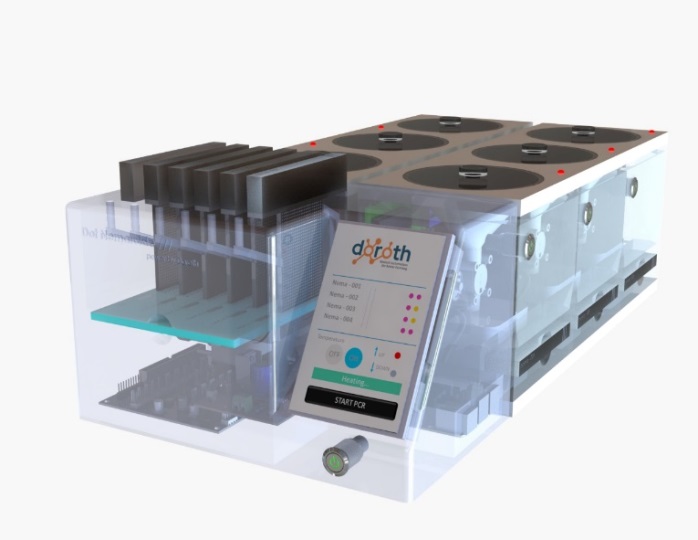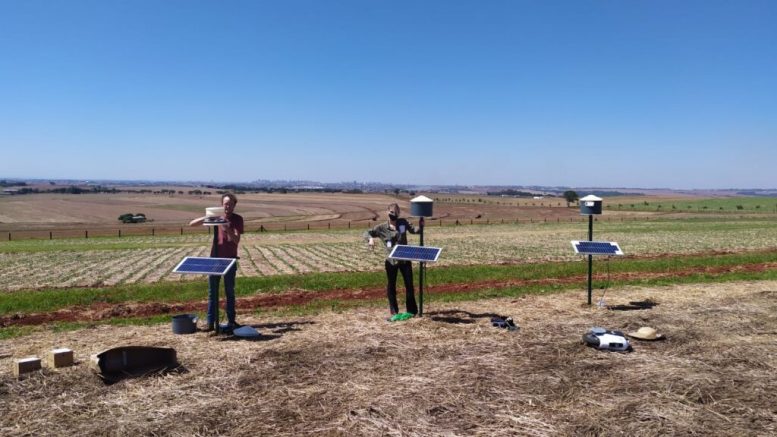“It is possible to monitor the main nematode species, Fusarium oxysporium, Pythium spp., six species of Bacillus, Trichoderma…”
Camilla Amaral is the CEO and co-founder of Doroth, a company that performs genomic analysis of soil for monitoring and quantification of microorganisms of agricultural interest.
Amaral graduated in odontology, has a Ph.D from the State University of Campinas and had an externship at Harvard Medical School.
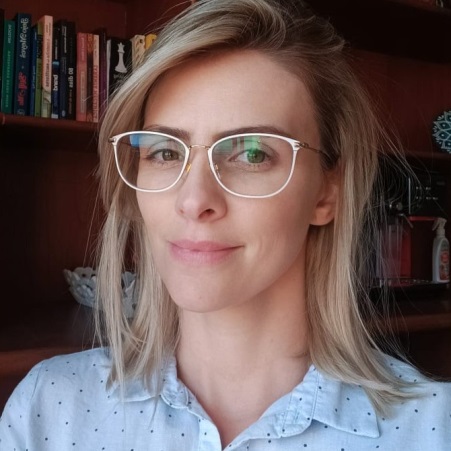
Camilla Amaral, CEO e co-fundadora da Doroth
AgriBrasilis – How is the soil microorganism monitoring program carried out? How important is it?
Camilla Amaral – We send soil collection kits to the farms and carry out online technical training to ensure the protocol is assertive. When the soil is collected (15 subsamples within a plot of up to 50 hectares), this sample is sent to our laboratory, where a series of biomolecular steps take place, such as testing the integrity of the genetic material and extracting the DNA present in the soil. Then we perform a series of analyzes with our qPCR, the same equipment used in covid tests.
We are able to quantify up to 40 microorganisms in cells per gram of soil, including nematodes, fungi and bacteria (beneficial and pathogenic). The results are delivered on an online dashboard that helps the farmer to understand his soil, reaching results of 15% optimization of inputs. In this way, the farmer knows what to apply and where to apply, customizing his plots.
AgriBrasilis – How can this technique lead to increased productivity on farms?
Camilla Amaral – Our service anticipates diseases and with that the farmer is able to apply products more assertively and individualize their biological management, since he is able to know which plots are at greater risk of infection or are most lacking in biological inputs, reducing losses and improving your productivity by at least 15%.
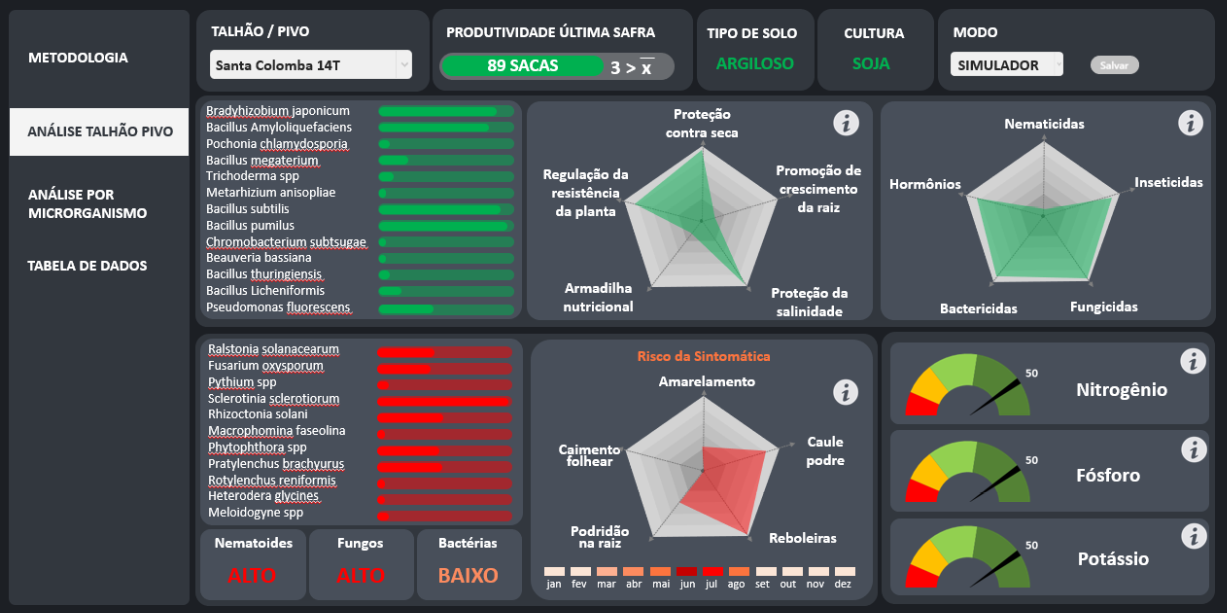
Interactive dashboard containing concentrations of beneficial and pathogenic microorganisms related to soil quality indicators and pathogenicity potentials
AgriBrasilis – Which microorganisms can be monitored?
Camilla Amaral – Today there are about 40 microorganisms of agricultural interest that the farmer uses and has to recognize in his crops. We plan to expand to over 50 in the coming months.
It is possible to monitor the main nematode species, Fusarium oxysporium, Pythium spp., six species of Bacillus, Trichoderma, Pseudomonas fluorescens, Bradyrhizobium japonicum, etc.
We can also develop in a few weeks the standardization for identification of other species of interest for specific cultures.
AgriBrasilis – What does the DOT AR technology, that is in the field-testing phase, consist of? What are the next steps for the launch?
Camilla Amaral – DOT AR is our first autonomous device, which captures spores in the air for 24 hours and performs molecular analysis in loco, sending an alarm via app with the identification of the arrival of Asian rust and its variants.
When the spore is identified, the equipment sends a real-time alert to the farmer. The device works for 120 days, without the need for maintenance, and its launch will be with a chemical pesticide industry, scheduled for the 2023-24 season.
AgriBrasilis – What are the other services offered by the company?
Camilla Amaral – We are developing three types of devices for biological monitoring in crops. All of them have server connectivity, generating a database of all collections and analyses, providing the farmer a monitoring throughout the harvests of concentrations and identification of biological data relevant to management or control practices such as royalties from agricultural production. Besides the DOT AR, we also have the Dot.Lamp, portable and rapid test to identify DNA of pathogenic microorganisms, resistance genes or transgenics in leaf, seed or soil samples. Identifies and connects data to the server within an hour and a half.
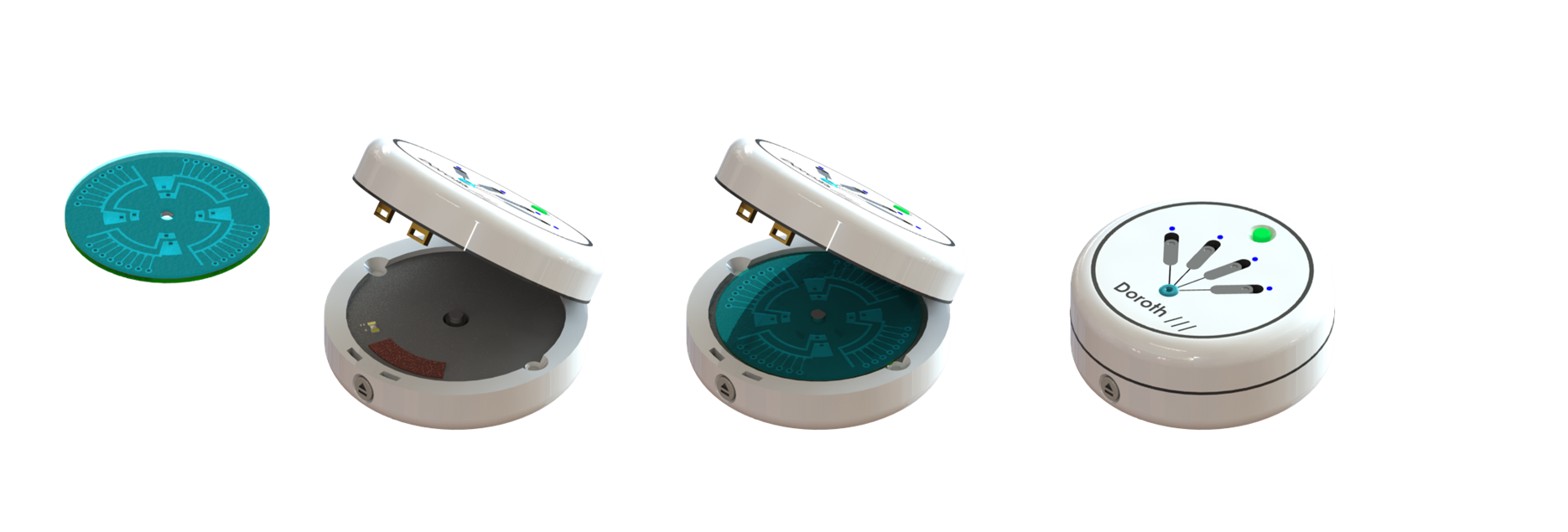
And we have the Dot.Nema, a portable device that in less than six hours identifies and quantifies up to four nematode species in soil samples. It has the capacity to analyze up to six samples simultaneously and integrates the data with previous georeferencing of the fields.
The devices work through the biomolecular testing vessel on Doroth’s proprietary chips. They automatically perform isothermal PCR reactions so that we have the recognition of the DNA of the target in question.
We want to become the largest biological monitoring company in Brazil and the first to do it remotely, supported by molecular biology techniques. The future of sustainable agriculture will take place through real-time information, with increasing precision and assertiveness.
